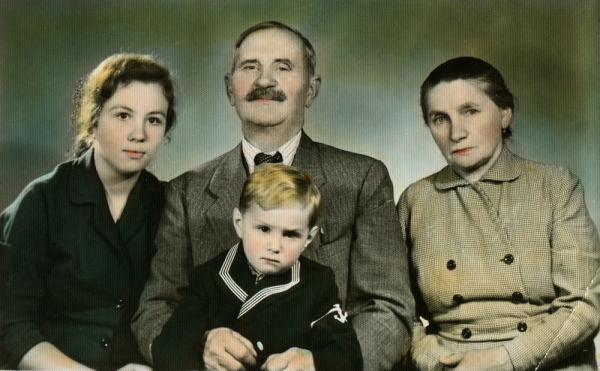
Your family - the most important group you will ever belong to and the first group your children ever belong to. Teaching your children about the history of this group can help them form a bond and feel a part of something important.
Alan F. Packer, a genealogy enthusiast, has said, "Family history is more than genealogy, rules, names, dates and places. It is more than a focus on the past. Family history also includes the present as we create our own history. It includes the future as we shape future history through our descendants. A young mother, for example, sharing her family stories and pictures with her children is doing family history work."
You may have been using this tool all along and not even realize it. Sharing family history can give you fantastic results.
Knowing helps kids cope
Teenagers often have a hard time in adolescence. They feel the need to be part of a group. Family history can really help your kids feel like they are part of something bigger and cooler than just an ordinary family. Learning about something bigger than yourself creates a sense of pride and honor, two things your children need.
Writing in a journal is history, too
Encouraging your kids to journal can help them with their everyday struggles. Compiling what happened, and thinking it through while writing it on paper helps them process what happened, learning from their mistakes and triumphs.
I will warn you, when teaching your kids about family history, don't dust off the old Bible and unfold the ancient family tree. Your kids will check out, mentally, before they ever check out Great-Great Uncle Emeil. Kids love to learn, and love to play, combine the two for great fun.
Here are some tips for sharing your family's story with your kids
1. Little Reporters
Start with your living relatives. Have your kids come up with a list of questions, with your help, of course. (We don't want them asking grandma what kind of undies she has on.) Then, set up a camera so you can video the interaction. Let your kids take turns as reporters asking the questions. The remarkable history behind the answers is amazing to hear. You will learn things you never knew as well. We have an audio recording of my great-grandmother in this same fashion, it has become a family heirloom.
2. Ancestor of the Week, or Month
We are doing this in our family. We have worked our way up the family tree, introducing a new ancestor each month. It has been a blast as the kids help me find information on the ancestor by talking to our living relatives, and searching databases online. Stories we never knew pop up every week. They love building a foundation in history they can brag about to their friends. Family history has become cool, who knew?!
3. Bits and pieces
Listen, not every kid is going to jump at the idea of learning about a bunch of dead people he never knew. If you are serious about this task, and I warn you it will become one of the most enjoyable parts of your day, then you will have to educate yourself first. Dive into family history, search out journals, newspaper articles, anything to help you in your quest to get to know your ancestors. As you do this interject things into daily life for your kids.
Ask your kids opinions about who and what part of the family they want to look at. Set up times for family trips to significant places in your personal family history. It's amazing the feeling you get when you stand where your Great, Great, Great Grandfather built his first homestead.
Enjoy the journey into family history
Make sure your family is enjoying it, don't be afraid to change the way you present your family history if your kids are not interested. Start educating yourself, and then getting your family on the same path. It may surprise you how quickly your family picks up on the family story, and how much they love it.

